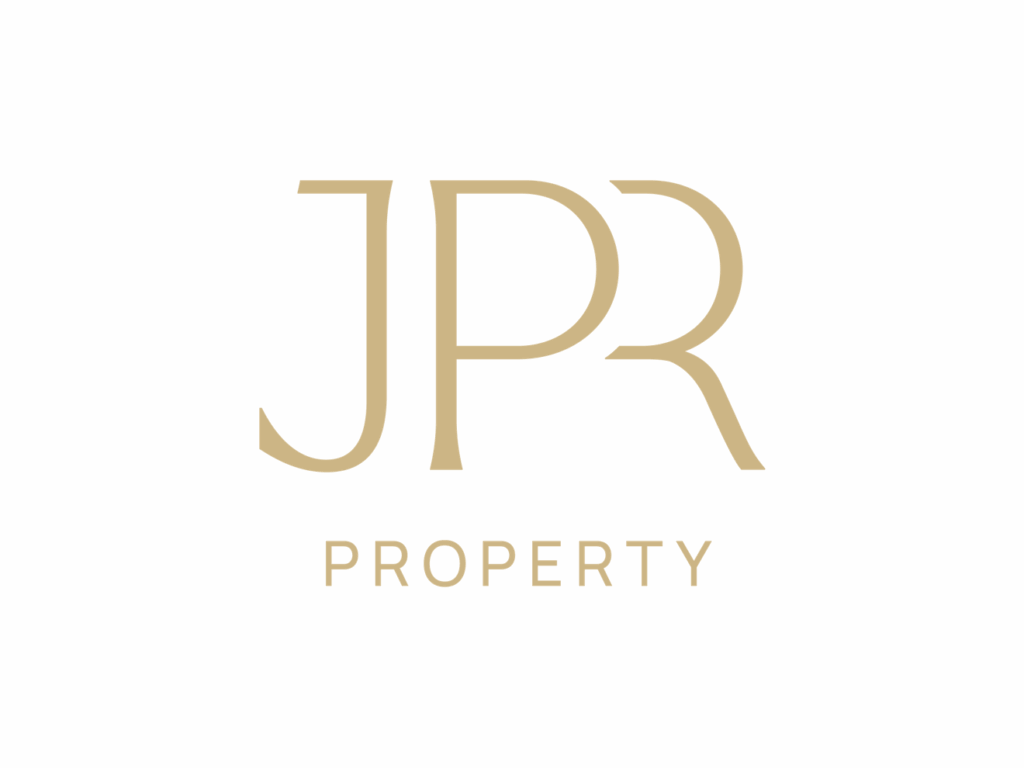What is commercial property management and why is it important?
Commercial property management is a multifaceted field that’s critical for successfully operating and optimising commercial properties. From office buildings and retail spaces to industrial complexes and leisure facilities, effective commercial property management is crucial for maximising value, ensuring tenant satisfaction, and maintaining profitability.
That’s why MRI Software develops smart solutions for the property sector. Our commercial property management software automates key processes, collects and organises essential data, and manages customer relations.
Commercial Real Estate Software
Increase efficiency, reduce costs, and maximise portfolio performance.

This examines the fundamentals of commercial property management, highlighting its diverse responsibilities and debunking some common commercial property management misconceptions. By understanding the significance of commercial property management trends, property owners and investors can make informed decisions to safeguard their investments and create thriving environments for businesses and tenants alike.
Table of contents:
-
-
- What is commercial property management?
- Why do we need commercial property management?
- What types of commercial properties can be managed?
- Key Responsibilities of a Commercial Property Manager
- Benefits of Professional Commercial Property Management
- Challenges in Commercial Property Management
- Tools and Software for Effective Commercial Property
- Contact MRI Software
- Commercial property management FAQs
-
What is Commercial Property Management?
Commercial property management refers to the day-to-day administration and strategic oversight of income-generating properties. These include offices, retail centres, industrial parks and mixed-use developments. The role centres on maintaining asset performance while supporting tenant satisfaction and reducing operational risk.
The scope of work includes lease negotiations, rent collection, compliance, facilities maintenance and financial reporting. A property manager ensures the space is not only occupied but well maintained, legally compliant and financially viable.
This type of management often requires balancing short-term operational goals with long-term investment strategies. By focusing on proactive service delivery and continuous improvement, commercial property managers help build strong tenant relationships and ensure ongoing asset performance.
Why Do We Need Commercial Property Management?
Commercial property management plays a key role in maintaining the value and function of high-demand real estate assets. By managing responsibilities across leasing, compliance, maintenance and communication, property managers help ensure that operations run smoothly.
Their involvement allows investors and property owners to take a more hands-off approach while remaining confident that their assets are being managed responsibly. Whether responding to tenant requests or handling regulatory documentation, commercial property managers provide structure and efficiency.
Without an experienced property manager, issues like unpaid rent, unresolved maintenance problems or non-compliance with safety codes can quickly escalate. This can damage both your reputation and bottom line. An organised and reliable property management approach helps you avoid these risks.
What Types of Commercial Properties Can Be Managed?
Retail
Retail property management involves working with a range of tenants and balancing their needs with the demands of a competitive market. Managers often oversee shopping centres, strip malls and stand-alone shops. Success depends on tenant mix, foot traffic and property presentation.
A retail property manager may also be responsible for coordinating marketing efforts, overseeing seasonal displays or handling shared area responsibilities. Communication and collaboration with multiple stakeholders are central to the role.
Offices
Office property management focuses on creating professional environments that support productivity. Tasks include maintaining shared amenities, scheduling maintenance and ensuring security measures meet tenant expectations. Lease agreements may require flexibility to accommodate fluctuating workforce numbers.
In high-rise or multi-tenant buildings, managers must ensure amenities like lifts, lobbies, meeting spaces and kitchen areas remain operational and inviting. This contributes to tenant retention and satisfaction.
Entertainment
Entertainment properties, such as event venues or amusement parks, require specialised attention to crowd control, ticketing, safety and regular cleaning. Managers are responsible for coordinating events, maintaining service areas and ensuring all facilities meet compliance standards.
In many cases, entertainment property managers must also work with external vendors, manage event logistics and handle customer-facing concerns, making adaptability and communication skills essential.
Industrial Properties
Industrial properties often involve warehouses, distribution centres and manufacturing facilities. Management focuses on operational efficiency, load-bearing infrastructure, access control and machinery upkeep. Health and safety play a prominent role.
Managers need to understand technical operations and ensure that space is used effectively. They often liaise with logistics companies and coordinate maintenance on critical infrastructure.
Leisure Properties
This category includes gyms, wellness centres, resorts and similar venues. Managers work to maintain guest satisfaction, ensure high cleanliness standards and coordinate bookings, programs and seasonal upgrades.
Customer experience is at the forefront. Managers must ensure smooth check-ins, manage staff and respond to client feedback, often while handling budgetary or operational constraints.
Key Responsibilities of a Commercial Property Manager
Leasing and Tenant Relations
Leasing is one of the core responsibilities. Managers must attract and retain reliable tenants, negotiate lease terms, and maintain clear communication. Handling renewals, resolving disputes and understanding tenant business needs all contribute to strong occupancy rates.
Building long-term relationships can increase tenant retention and reduce vacancies. Managers often serve as the key point of contact, balancing tenant requests with property owner priorities.
Maintenance and Facilities Management
Managers coordinate both scheduled and ad hoc maintenance. They ensure that buildings remain safe, attractive and operational. This might include HVAC servicing, cleaning, landscaping and managing third-party contractors.
Preventative maintenance schedules and timely response to repairs help extend asset life and improve tenant experience. Well-maintained properties also reduce the risk of insurance claims and legal issues.
Financial Management and Rent Collection
Property managers handle invoicing, rent collection and operating expenses. They manage budgets, track income and outgoings and prepare financial reports. This work supports both short-term cash flow and long-term planning.
They may also assist in setting rental rates based on market analysis. Their reporting provides owners with transparency and allows for informed financial decisions.
Legal Compliance and Risk Management
Ensuring that properties meet local regulations is essential. Managers monitor compliance with safety codes, accessibility laws, and environmental standards. They also oversee insurance coverage and support dispute resolution.
When legal issues arise, such as tenant evictions or property damage claims, managers often coordinate with legal professionals to ensure correct procedures are followed.
Benefits of Professional Commercial Property Management
Maximising Property Value
A well-managed property retains tenants, reduces downtime and keeps facilities in top shape. Professional oversight ensures the property is positioned competitively within its market.
Effective management also helps prevent value loss due to neglected maintenance or extended vacancies. Proactive strategies make a measurable difference over time.
Ensuring Regulatory Compliance
Managers stay up to date with legislation, from lease obligations to fire safety. By doing so, they reduce the likelihood of penalties and protect the interests of the property owner.
They help implement necessary changes to remain compliant and can advise owners on how new regulations may impact the property’s future operations.
Enhancing Tenant Satisfaction
Happy tenants are more likely to stay long term. Responsive communication, clean facilities and prompt repairs all contribute to a professional tenant experience.
By acting as an accessible point of contact, managers build trust with tenants, improving the likelihood of lease renewals and positive word-of-mouth.
Challenges in Commercial Property Management
Navigating Complex Lease Agreements
Commercial leases can be lengthy and legally dense. Managers need to understand each clause to ensure both parties meet their obligations and avoid conflict.
Lease structures vary depending on property type and tenant. Being able to interpret and manage these details is vital.
Managing Maintenance and Repairs
Unexpected breakdowns and routine maintenance require prompt coordination. Delays can affect tenant operations and reflect poorly on the landlord.
Establishing a network of trusted service providers and maintaining detailed asset records supports faster response times and better planning.
Staying Updated with Regulatory Changes
Laws and codes evolve. A manager must stay informed and adjust practices accordingly. This includes zoning changes, tax updates and new building codes.
Failing to comply can result in fines or operational disruptions. Ongoing education and engagement with industry updates are essential.
Tools and Software for Effective Management
Property Management Software Solutions
Modern tools allow for streamlined workflows, including rent collection, service scheduling and documentation. Software improves visibility and ensures nothing is overlooked.
Systems that centralise data and automate reminders help property managers remain organised and reduce manual errors.
Tenant Communication Platforms
Clear communication is critical. Platforms that allow for maintenance requests, updates and document sharing help tenants feel supported and informed.
Digital tools also improve accessibility, allowing tenants to interact with managers at any time without needing to make a call or send an email.
Enhance Your Commercial Property Management Strategy
Strong commercial property management doesn’t just benefit your bottom line. It creates better places for people to work, shop and engage. By adopting structured systems, staying informed and using the right tools, you can strengthen the value and appeal of your property.
Consistency, transparency and responsiveness are the keys to successful management. When your approach is well-organised and proactive, your commercial property is more likely to thrive in a competitive market.
Commercial property management FAQs
Contact MRI Software
MRI Software helps transform the way you do business with our range of innovative solutions — including software that streamlines your commercial property management services. Contact us today to learn more about how we can help.
Quality-first growth: How JPR is building a high-value property management portfolio with leading technology and expertise
At a glance JPR Property is carving out a niche in Perth’s commercial real estate market with its specialised property management services. Read about how MRI’s PMX solution, with strategic support from its Managed Services team, has contributed to t…
